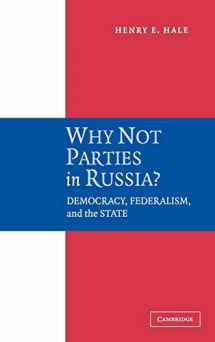
Why Not Parties in Russia?: Democracy, Federalism, and the State
Book details
Summary
Description
Russia poses a major puzzle for theorists of party development. Virtually every classic work takes parties to be inevitable and essential to electoral competition, but Russia remains highly nonpartisan more than fifteen years after Gorbachev first launched his democratizing reforms. The problem is that theories of party development lack a "control case," almost always focusing on cases where parties have already developed and almost never examining countries where independent politicians are the norm. This book focuses on Russia as just such a control case. It mobilizes fresh public opinion surveys, interviews with leading Russian politicians, careful tracking of multiple campaigns, and analysis of national and regional voting patterns to show why Russia stands out. Russia's historically influenced combination of federalism and "superpresidentialism," coupled with a postcommunist redistribution of resources to regional political machines and "oligarchic" financial-industrial groups, produced and sustained powerful "party substitutes" that have largely squeezed Russia's real parties out of the "electoral market," damaging Russia's democratic development.


We would LOVE it if you could help us and other readers by reviewing the book
Book review



